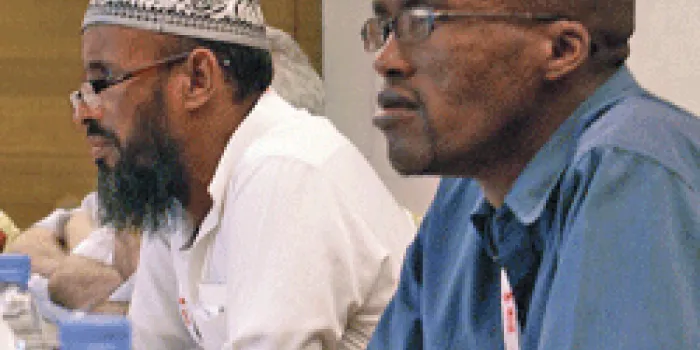The World Federation of Hemophilia (WFH) supports its goal of treatment for all through many programs, including Advocacy in Action. Started in 2010 and built on the foundation of the WFH’s Advocacy Initiatives to support the activities of the national member organizations (NMOs), the program encourages all members of the bleeding disorders community to embrace the spirit of advocacy and campaign for treatment for all.
Workshops are held by WFH staff, volunteers and expert guest trainers three times a year to develop and build on a variety of advocacy skills. NMOs receive tailored training and tools to support the development and implementation of their national advocacy initiatives. The program also provides essential support to selected organizations throughout the life of their advocacy initiative, including onsite visits and coaching, direct lobbying support and backup administrative support on matters of public policy. This combined approach strengthens the capacity of NMOs to advocate effectively and strategically for improved and sustained care for people with bleeding disorders.
Representatives from 16 NMOs from the Middle East and Africa met in Dubai for three days, August 29–31, 2014, to discuss building awareness and government support for the bleeding disorders communities in their respective countries. Other topics included using media as an advocacy tool and building relationships with key stakeholders, such as medical professionals.
During the meeting, a mix of lectures, group exercises and role-playing activities gave participants the tools to better advocate for proper care in their countries. Arafat Awajan, vice president of the Jordan Thalassemia and Hemophilia Society, shared his NMO’s experience in developing and maintaining government support. Magdy El-Ekiaby, MD, board member of the Egyptian Society of Hemophilia, offered advice on achieving better collaboration between medical and lay communities to advocate for better care.
Participants had many positive and encouraging things to say about the meeting. “This workshop enabled us to reinforce our advocacy skills and open up to new perspectives for action for the NMO,” said a participant from Cameroon. “I will take the knowledge I have learned back to my peers, so that we can develop successful future advocacy plans,” said a representative from South Africa.
When asked about the most useful topic at the meeting, many said they had benefited from the session on media relations; others reflected on how they learned from one another. A representative from Mauritania said the most beneficial aspect was “hearing about the experience of other associations.”
Many of the issues that NMOs face in their advocacy work are similar across countries. Strained budgets, lack of interest or knowledge from government stakeholders, bureaucratic red tape and changes in government are universal roadblocks faced by hemophilia organizations across the world when trying to obtain improved bleeding disorders treatment.
The workshops provide an opportunity for NMOs to not only acquire knowledge and advocacy tools, but also share success stories and challenges with other organizations to achieve a stronger voice for the global bleeding disorders community.
For more information on WFH Advocacy in Action, go to: www.wfh.org/aia.

